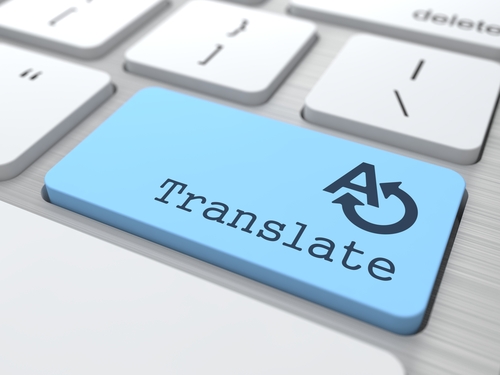Is machine translation the future?
There is a widespread belief among many that machines will replace human translators over the next few years. Media reports keep pointing to the latest advances in computer translation technology and often conclude that the days of human translators are numbered.
But is this really the case? Not so, according to the US Department of Labor, which recently predicted just under 30% growth for the translation profession by 2024.
Using free machine translation tools instead of paying a professional may seem like a good idea, especially if you have a limited budget, but it rarely turns out well. Such software can provide the gist of a foreign tongue, but for businesses and organisations that are serious about the way they communicate, a rough translation is not enough.
While platforms like google translate are great for short sentences or one-word translations, the end results are often very literal; automatic translation devices are incapable of translating native colloquialisms or other cultural themes from language to language – only translation professionals can provide this.

Getting it wrong is costly
There are many horror stories about bad translations, from the light-hearted to the more severe. One memorable example is when KFC’s tagline “finger-lickin” good’ was translated into “we’ll eat your fingers off”, or the time HSBC had its strapline “Assume Nothing” mistranslated to “Do Nothing” in several countries, resulting in a costly $10 million rebrand!
The problem with machine translation is that translating involves more than typing in another language. Professional translators, such as the ones we use, hone their skills through years of training and practice. Continuous professional development and plenty of diligence is the key to a successful translation career. It’s what differentiates the expert from the hobby linguist.
Serious translators also know their areas of expertise. The best are not jacks of all trades, but specialists. For instance, if a market research report into the UK pharmaceutical industry requires translation, it is important to deploy a translator with a background and credentials in this sector. Similarly, if a technology website, press release or product brief needs interpreting, we will always choose a sector specialist on such a project. This way, the client gets a professional outcome and the translator is rewarded for the years of hard work and training they have invested.
Vandu Language Services has been providing professional translation and interpreting for nearly 20 years in over 120 languages with friendly and helpful staff who can work with you throughout the process. Please contact us on 01273 473986 or email for further information:
translations@vlslanguages.com
